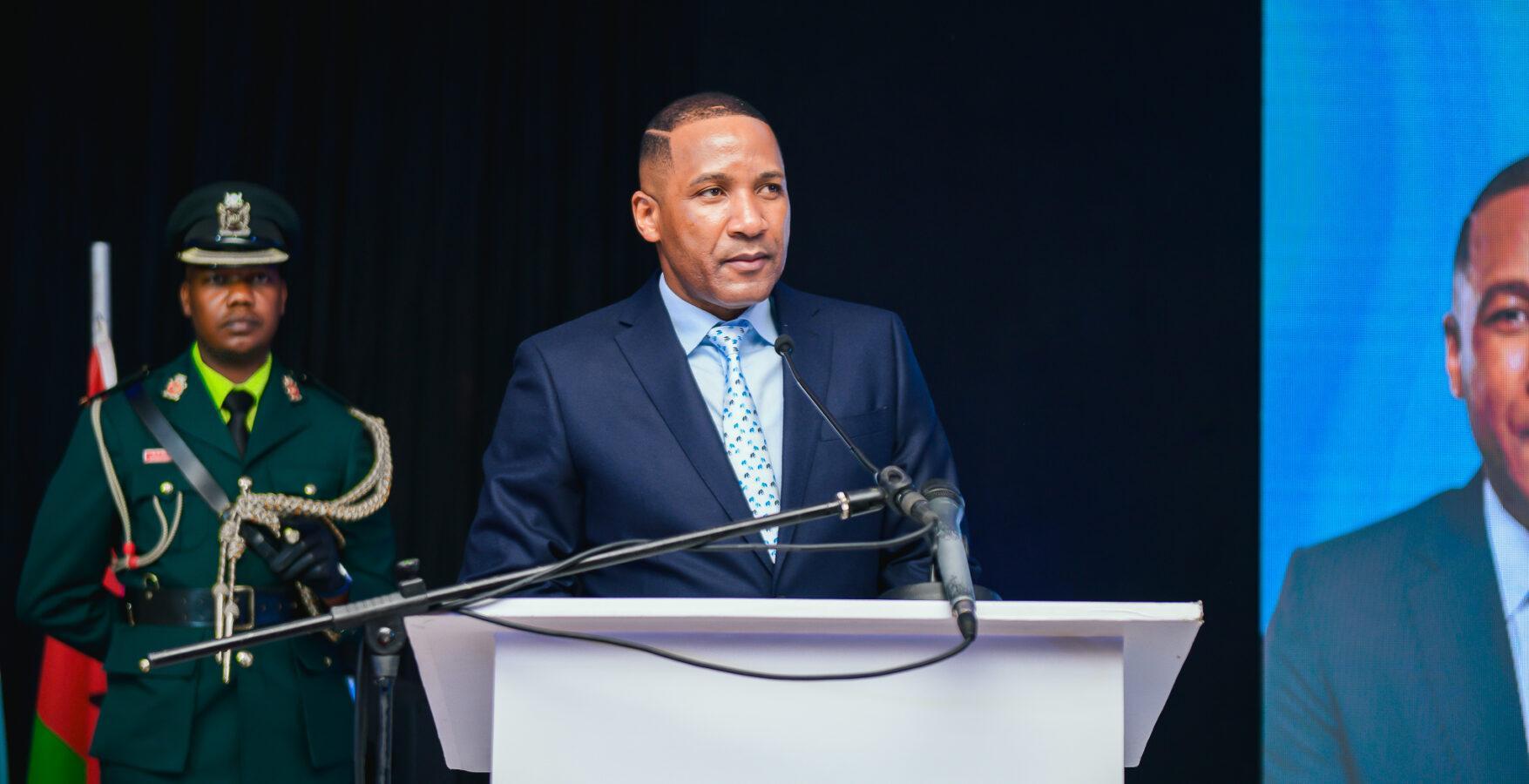Africa-Press – Botswana. President Advocate Duma Boko says it is evident that there are credible home grown businesses with the potential and technological know-how of producing quality goods able to compete in local, regional and the international markets.
However, for goods to thrive and sustain in any given market, they must be of the desired quality and be able to sell without a hassle. They must be International Standards Organisation (ISO) certified, President Boko said in a media interview on the sidelines of the US-Africa Business Summit in Luanda, Angola on Tuesday.
After touring the Botswana Investment and Trade Centre (BITC) stalls where goods produced by Botswana companies were exhibited at the summit, President Boko said he was without doubt that some local companies had the potential to enjoy the international market as long as they do it right.
He said companies must ensure that goods were at the level of acquiring ISO certification thus giving the consumers assurance that such goods were of high and desired quality. The President further said patenting a product was also an important step in doing a reputable businesses.
He said there were cases where individuals had lost businesses ideas or any form of ingenuity as they were never patented. He said through reverse engineering, some master minds were stealing other people’ ideas that were never protected and running away with it.
“Before taking your ideas/product into the market, first safeguard your intellectual property to safeguard your idea and creativity,” he said.
He said the goods must first be consumed by the local market and make it a point that they were of good quality, priced accordingly and be able to penetrate the world markets. In addition, President Boko said it was important to devise ways of advertising such goods and making them accessible. He urged them to take advantage of the Africa Continental Free Trade Area, which would equally encourage the use of digitilisation, a platform where businesses would market their products.
“Goods made in Botswana will be accessed by a customer in as far as Algeria, engage each other with ease at an affordable cost and timely,” he said.
As such President Boko said not only was the digital infrastructure necessary and a backbone for trade, it would push for the development of other trade corridors such as roads. He said a typical example of why connectivity was the foundation of ease of doing business was the Lobito Corridor, a major economic route connecting the Port of Lobito in Angola to the Katanga Province in the Democratic Republic of Congo (DRC) and the Zambian Copperbelt.
“All we have to do as Botswana is to ensure that we link with such corridors and allow locally based businesses to transport and sell goods wherever they were needed and arrive in good condition and on time,” he said.
He said as it was the case with Amazon where people from the comfort of their home using digital platform buy and sell products, the local companies must equally be in a position to sell to the different markets without any hassle. Therefore, he said trade and digital platforms as well as transport infrastructure must be in place for local businesses to grow. President Boko said he was concerned that most of Batswana were into doing business as middle men, where they bought finished products in other countries which could be done locally.
“We want Batswana who focus on manufacturing. It is mandatory for government to prioritise local manufacturers and long as they were producing goods of high and desired quality,” he said.
While encouraging local businesses to grow and penetrate global markets, he acknowledged that access to finance remained one of the primary challenges. He said it was important for companies to have easy access to financial assistance in order to produce food and feed the nation.
In an effort to address shortage of funding, President Boko said Botswana Stock Exchange would in October, launch a financial assistance scheme for small, medium enterprises and the informal sector. For a start, he said P600 million had been set aside to fund the scheme. He said the market was equally a challenge for products produced locally.
For More News And Analysis About Botswana Follow Africa-Press






